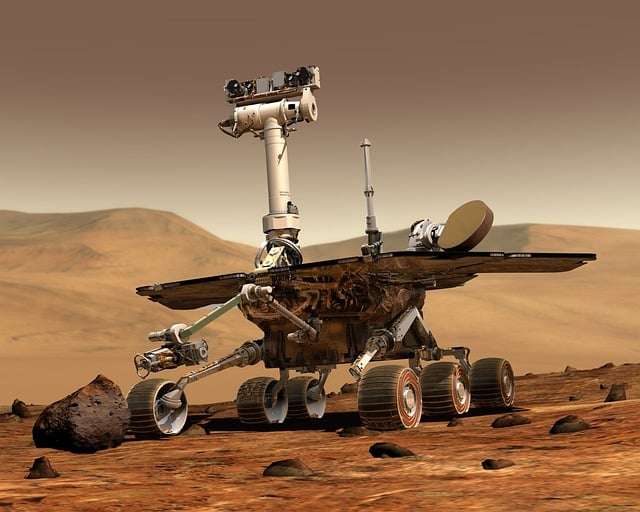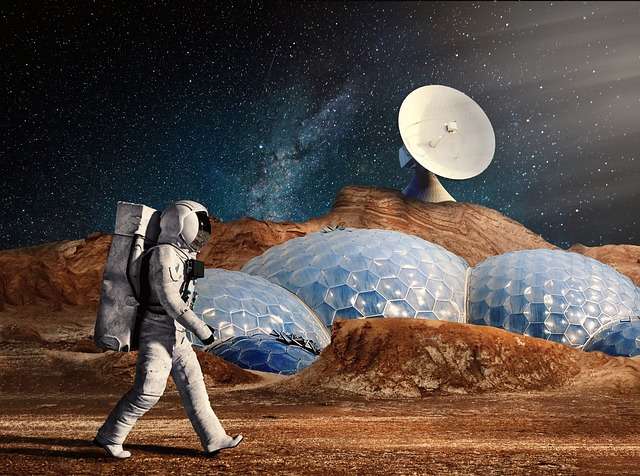Revealing the Martian Exploration Frontier

Scientists and businesspeople have long been captivated by Mars, the alluring red planet. With the speed at which technology is developing, mankind is about to enter a revolutionary new phase of history: the commercial colonization of Mars. This endeavor represents a significant advancement in space research as well as a wealth of possibilities for profitable corporate ventures outside of Earth’s borders.
Innovations in Technology Drive Progress

Considerable progress has been made in robots, life support, and propulsion systems, making Mars colonization missions conceivable. Reusable rocket technology advancements, like those shown in SpaceX’s Starship, offer affordable means of getting to and from Mars. Furthermore, the construction of infrastructure and dwellings on the Martian surface is being completely transformed by the incorporation of autonomous robots with cutting-edge AI capabilities.
Overcoming Obstacles with Strategic Solutions
Although there has been unquestionable progress, colonizing Mars will not be easy. Radiation exposure, very high temperatures, and the lack of a livable atmosphere are just a few of the problems. However, creative approaches like terraforming technology, radiation-resistant materials, and 3D-printed homes provide workable mitigation plans. For Mars colonization projects to succeed, overcoming these obstacles and fostering international cooperation will be essential.
A New Era of Opportunity

The colonization of Mars represents a paradigm change in human business ventures outside of Earth. Apart from scientific research, Mars has several commercial opportunities, ranging from resource exploitation to tourism. Businesses may diversify their revenue streams and position themselves as leaders in the emerging space economy by establishing a presence on Mars. As we set out on this historic adventure, the colonization of Mars heralds the beginning of a revolutionary period that is brimming with chances for corporate innovation and expansion.
Setting the Stage for Human Arrival
As humanity turns its gaze towards the red planet, the prospect of colonizing Mars captivates not only scientists and entrepreneurs but also the imagination of the general public. The journey to Mars is not just about reaching a new celestial body; it signifies humanity’s innate drive to explore, discover, and conquer the unknown.
Technological Foundations
The feasibility of Mars colonization has been propelled forward by remarkable advancements in technology. Robotics, once confined to the realms of science fiction, now play a pivotal role in laying the groundwork for human habitation on Mars. These robotic explorers, equipped with sophisticated AI, are instrumental in surveying the Martian terrain, constructing habitats, and conducting crucial experiments in preparation for human arrival.
Revolutionizing Space Travel Economics
Moreover, the advent of reusable rocket technology, exemplified by SpaceX’s Starship, has revolutionized space travel economics. This breakthrough drastically reduces the cost of launching payloads and personnel to Mars, making the dream of interplanetary colonization financially viable.
Overcoming Challenges Through Innovation
However, the path to Mars is fraught with challenges that demand innovative solutions. One of the most formidable obstacles is the hostile Martian environment, characterized by extreme temperatures, pervasive radiation, and a thin, inhospitable atmosphere. To overcome these hurdles, scientists and engineers are developing groundbreaking technologies, including advanced radiation shielding materials, atmospheric generators, and bioregenerative life support systems.
Terraforming: A Vision of a Habitable Mars
Terraforming, the process of transforming Mars into a habitable planet, represents the pinnacle of human ingenuity and ambition. While currently a theoretical concept, terraforming holds the potential to terra-sculpt Mars, altering its climate and surface conditions to resemble those of Earth. Though a monumental undertaking, the prospect of a terraformed Mars offers a tantalizing vision of a second home for humanity.
Commercial Opportunities and International Collaboration
Furthermore, the colonization of Mars opens up a vast frontier of commercial opportunities. The Red Planet is rich in valuable resources, including rare minerals, metals, and water ice, which could be mined to sustain human settlements and fuel further space exploration. Additionally, the allure of Martian tourism presents a lucrative market, with adventurous individuals eager to experience the thrill of visiting another world.
Collaboration for Success
In this new era of space exploration, international collaboration will be paramount. The collective expertise, resources, and manpower of nations across the globe must be harnessed to tackle the complex challenges of Mars colonization. By fostering collaboration among governments, space agencies, and private enterprises, we can accelerate progress towards our shared goal of establishing a sustainable human presence on Mars.
A Watershed Moment in Human History
Moreover, the colonization of Mars represents a watershed moment in human history, signaling our transition from a single-planet species to a multiplanetary civilization. Just as the age of exploration transformed the course of human civilization on Earth, the colonization of Mars will redefine our understanding of ourselves and our place in the universe.
Conclusion: Dare to Dream
In conclusion, the future of space exploration lies in the colonization of Mars. Through relentless innovation, strategic planning, and international cooperation, we stand on the brink of a new frontier, where the possibilities are as vast as the cosmos itself. As we embark on this epoch-making journey, let us dare to dream, to explore, and to reach for the stars.”






